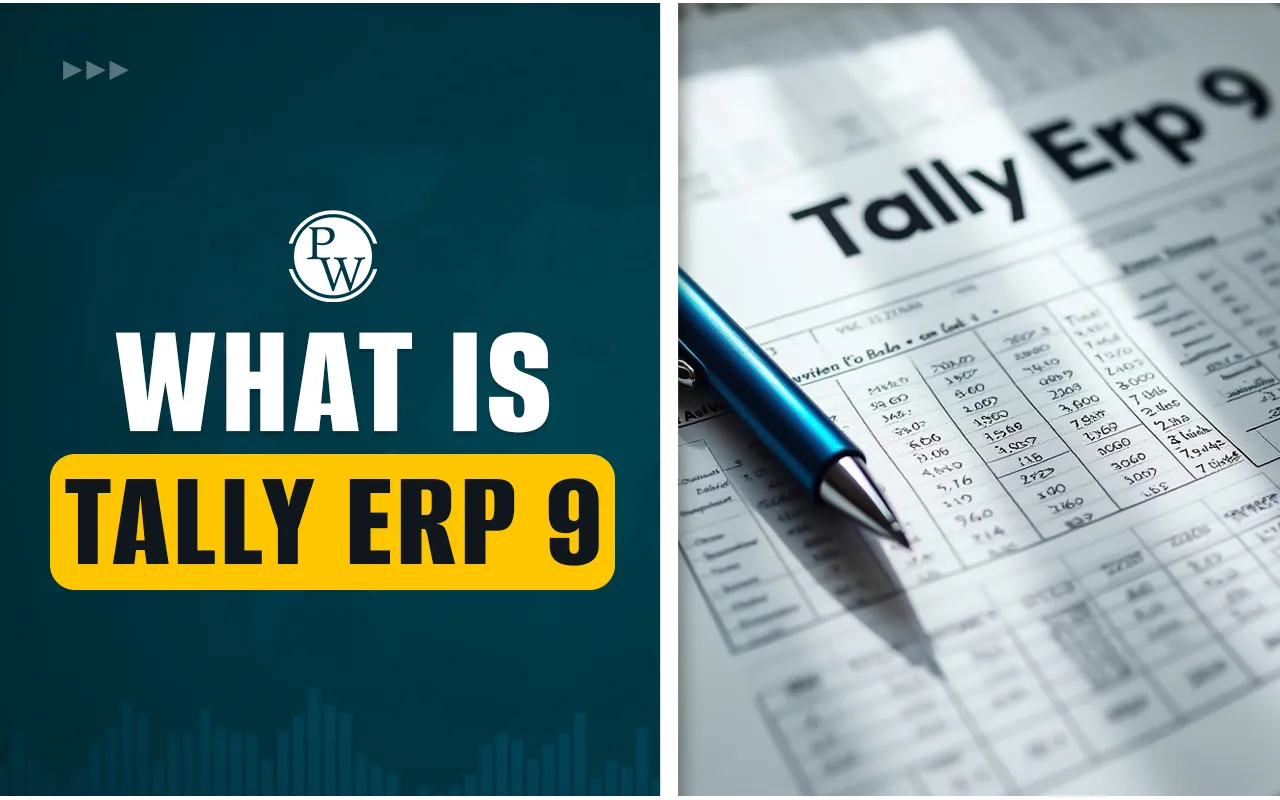
Accounting Skills: What makes a strong accounting resume stand out? Employers look for candidates with the right accounting skills to handle financial records, analyze data, and ensure compliance.
Whether you're a recent graduate or switching careers, developing basic accounting skills is essential for success. A well-crafted resume for an accounting job should highlight both technical expertise—such as financial reporting, GAAP knowledge, and proficiency in accounting software—and soft skills like analytical thinking and attention to detail.
This guide covers the skills required for accounting, how to list them on your resume and ways to improve them. If you're considering an accounting course to boost your expertise, this will help you get started.
Why Accounting Skills Matter on Your Resume?
Accounting skills are the abilities needed to manage financial records, analyze data, and ensure compliance with regulations. These include basic accounting skills like bookkeeping, budgeting, and preparing financial statements, as well as soft skills like problem-solving and communication.
In a resume for an accounting job, listing relevant accounting resume skills helps employers assess your suitability.
For example, proficiency in accounting software like Tally or QuickBooks shows technical expertise, while attention to detail ensures accuracy in financial reporting.
Employers prioritize candidates with the skills required for accounting, as they demonstrate competence in handling transactions and audits. Highlighting these skills increases your chances of landing an interview and advancing in your career.
Read More - Accounts Payable Interview Questions with Answers for Freshers
Top Accounting Skills to Include in Your Resume
When applying for accounting roles, showcasing the right mix of technical and soft skills on your resume can make a strong impact. Employers look for candidates with a solid understanding of accounting principles, software proficiency, and strong analytical abilities.
Below are the accounting skills that can strengthen your resume:
Technical Accounting Skills
Technical accounting skills are essential for handling financial data, ensuring compliance, and making informed business decisions. Here are key technical skills to include in your accounting resume:
1. Accounting Principles and Financial Reporting: A strong grasp of basic accounting skills, including Generally Accepted Accounting Principles (GAAP) and International Financial Reporting Standards (IFRS), is essential. These frameworks guide financial reporting and help ensure compliance with industry regulations.
Proficiency in financial reporting involves preparing balance sheets, income statements, and cash flow statements. Employers value professionals who can analyze these reports to assess a company’s financial health and support decision-making.
2. Accounting Software Proficiency: Modern accounting relies on technology, making proficiency in tools like QuickBooks, SAP, Tally, and Microsoft Excel an important accounting resume skill. Familiarity with enterprise resource planning (ERP) software and tax-preparation tools like Lacerte or ProConnect adds value.
3. Auditing and Compliance: Understanding auditing processes and regulatory compliance is crucial for accountants. Knowledge of internal controls, risk assessment, and financial audits helps in ensuring accuracy and preventing fraud.
4. Tax Preparation and Filing: Tax compliance is a critical aspect of accounting. Strong taxation skills, including the ability to calculate and file returns while adhering to tax laws, can help businesses optimize their tax strategies while avoiding penalties.
5. Budgeting and Forecasting: Budgeting and forecasting skills are essential for financial planning. Accountants who can create and analyze budgets, predict financial outcomes, and identify cost-saving opportunities contribute significantly to business growth.
6. Cost Accounting and Financial Analysis: Cost accounting involves tracking and managing business expenses to maximize profitability. Strong financial analysis skills help in identifying financial trends, assessing risks, and making data-driven decisions.
7. Payroll Management and Account Reconciliation: Payroll processing involves managing salaries, deductions, and tax withholdings while ensuring compliance with labour laws. Additionally, account reconciliation helps maintain accuracy by comparing financial records to identify discrepancies.
Soft Skills for Accountants
Soft skills are just as important as technical expertise in accounting, helping professionals communicate effectively, solve problems, and manage tasks efficiently. Here are the top soft skills for accountants:
1. Attention to Detail and Accuracy: Accounting requires precision. A small miscalculation can lead to significant financial errors. Employers seek professionals who pay close attention to detail when handling financial data.
2. Analytical and Problem-Solving Skills: Strong analytical skills help accountants interpret financial information, detect irregularities, and develop solutions to financial challenges. These skills required for accounting are crucial for assessing business performance and improving financial strategies.
3. Communication and Interpersonal Skills: Accountants must communicate complex financial data to clients, executives, and stakeholders. Strong written and verbal communication skills make it easier to explain financial reports and recommendations effectively.
4. Time Management and Organization: Managing multiple financial tasks and meeting strict deadlines is a part of an accountant’s role. Strong organization and time management skills ensure efficient handling of financial reporting, audits, and tax filings.
5. Ethical Decision-Making and Trustworthiness: Accounting professionals handle sensitive financial information. Upholding ethical standards and maintaining confidentiality builds trust with clients and employers.
6. Adaptability and Technological Proficiency: As accounting evolves with digital tools and automation, adaptability is important. Staying updated with new accounting technologies and industry changes ensures career growth and efficiency in financial management.
Specialized Accounting Resume Skills
Specialized accounting resume skills go beyond basic accounting knowledge, demonstrating expertise in specific areas like financial analysis, regulatory compliance, and data management. These skills enhance your value in specialized accounting roles:
1. Business and Financial Understanding: Accountants must understand business operations, including revenue generation, cost management, and investment strategies. This knowledge helps in making informed financial recommendations.
2. Data Analysis and Financial Modeling: Modern accountants rely on data analytics to forecast trends and improve decision-making. Financial modeling skills help in scenario analysis, valuation, and long-term financial planning.
3. Internal Controls and Risk Management: Implementing internal controls minimizes financial risks and ensures compliance with regulations. Accountants with risk management expertise can help businesses prevent fraud and maintain financial integrity.
However, having the right accounting skills on your resume can make you a strong candidate for accounting roles. Employers value professionals with a mix of technical expertise, financial analysis skills, and strong communication abilities.
By showcasing these skills in your resume, you can improve your chances of securing accounting positions in various industries.
How to Highlight Accounting Skills on Your Resume?
When applying for an accounting job, showcasing your skills effectively can improve your chances of landing an interview. A well-structured resume that highlights both technical and soft skills can demonstrate your expertise and suitability for the role:
1. Create a Dedicated Skills Section:
A separate skills section makes it easy for employers to identify your capabilities at a glance.
- List relevant accounting skills: Include financial reporting, tax preparation, budgeting, auditing, and compliance.
-
Mention software proficiency: Highlight experience with QuickBooks, SAP, Xero, or other accounting software.
-
Include both hard and soft skills: Combine technical expertise (e.g., GAAP, IFRS) with soft skills like attention to detail and communication.
-
Tailor it to the job description: Focus on skills that match the specific role you’re applying for.
2. Highlight Certifications and Education:
Your qualifications add credibility to your expertise.
- List accounting certifications: CPA, CMA, CA, or any relevant certification should be prominently mentioned.
-
Mention specialized coursework: If you’ve taken courses in taxation, financial analysis, or forensic accounting, include them.
-
Emphasize skills over degree: While a degree is valuable, showcasing your practical accounting skills matters more.
3. Use Specific Examples in Work Experience:
Demonstrating skills through past achievements makes your resume stronger.
- Financial management tasks: Mention experience in ledger management, account reconciliation, and preparing financial statements.
-
Quantify your impact: Example – “Reduced financial discrepancies by 20% through improved reconciliation methods.”
-
Use action verbs: Start bullet points with words like "Prepared," "Analyzed," "Implemented," or "Reconciled."
4. Optimize Your Resume Summary (If Needed):
A summary or objective statement can provide a quick overview of your expertise.
- For experienced professionals: Summarize your key accounting skills and achievements in 2-3 lines.
-
For fresh graduates: Use an objective statement to highlight your career goals and relevant coursework.
By structuring your resume for an accounting job with a clear focus on basic accounting skills and accounting resume skills, you can make a strong impression on potential employers.
Read More - Account Manager Job Description, Qualifications, and Salary
Tips to Improve Accounting Skills for Your Resume
Enhancing your accounting skills can help you stay competitive in the field and improve your job prospects. Whether you're an aspiring accountant or a professional looking to advance, continuous learning and practical experience are essential. Here are five effective ways to strengthen your skills:
1) Build a Strong Foundation in Accounting Concepts:
Understanding basic accounting skills like assets, liabilities, equity, revenues, and expenses is crucial. A solid grasp of these concepts helps in analyzing financial transactions and preparing accurate reports.
You can improve by reading accounting books, taking an accounting course, or joining study groups.
2) Gain Practical Experience:
Hands-on experience enhances your ability to apply accounting theories in real-world scenarios. Consider:
- Internships or part-time accounting roles
-
Assisting small businesses with bookkeeping
-
Practicing with accounting software like QuickBooks and SAP
For example, preparing financial statements for a small business can improve your ability to analyze financial data.
3) Stay Updated on Accounting Regulations:
Accounting standards and tax laws frequently change. Staying informed about these updates ensures compliance and accuracy in financial reporting. Subscribe to industry newsletters, attend workshops, and follow regulatory bodies to keep your knowledge current.
4) Improve Problem-Solving and Analytical Skills:
Strong problem-solving skills help accountants handle discrepancies and make data-driven decisions. Work on case studies, practice financial analysis, and take on challenging projects to enhance these abilities.
For instance, analyzing budget variances in a company’s financials can improve your decision-making skills.
5) Network and Learn from Professionals:
Building connections in the industry can provide valuable insights and learning opportunities. Consider:
- Joining professional accounting associations
-
Attending networking events and finance seminars
-
Finding a mentor who can guide your career growth
Improving your accounting skills requires continuous learning, hands-on experience, and staying updated with industry trends. Strengthening both technical and soft skills enhances your resume and improves job prospects.
The takeaway is simple—develop your expertise, highlight relevant skills strategically, and apply them in real-world scenarios. A well-rounded skill set increases your chances of success in the competitive accounting job market.
Build Your Accounting and Taxation Skills with PW
The PW Accounting and Taxation Online Course, developed with PwC India, is a 4-month program covering finance, tax, and accounting concepts. Gain practical training in tools like Zoho Books and Excel, along with industry insights and certification. Join the PW Accounting and Taxation Online Course today and build your accounting skills!
FAQ
What are the important accounting skills for a resume?
How do I write a resume for an accounting job?
How many skills should I list on my accounting resume?
How can I improve my accounting skills for my resume?
Why are accounting skills important for a resume?










